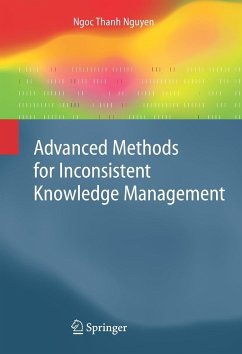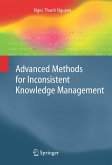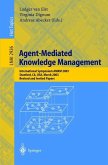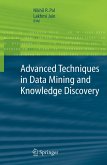This book is a first. It fills a major gap in the market and provides a wide snapshot of intelligent technologies for inconsistency resolution. The need for this resolution of knowledge inconsistency arises in many practical applications of computer systems. This kind of inconsistency results from the use of various resources of knowledge in realizing practical tasks. These resources are often autonomous and use different mechanisms for processing knowledge about the same real world. This can lead to compatibility problems.
Nowadays in the knowledge society, each member deals with a number of tasks related to knowledge management. The most often realized tasks are: decision making, knowledge integration, selection, and retrieval. In all these tasks one has to solve inconsistency of knowledge. Inconsistency is a feature of knowledge which is characterized by the lack of possibility for inference processes. Therefore, solving inconsistency of knowledge is a basic and very essential subtask in many tasks of knowledge management. The whole management process may become impossible if the incons- tency is not resolved. This book presents a set of methods for resolving inconsistency of kn- ledge. It originally treats the inconsistency on two levels, syntactic and semantic, and proposes methods for processing inconsistency on these levels. The methods proposed here are consensus based. They are worked out on the basis of mathematical models for representing inconsistency as well as tools for measuring and evaluating the degree of inconsistency, defined by the author. The presented material shows that the solution of inconsistency is str- gly related to knowledge integration processes. Therefore, along with - consistency resolution tools, the author proposes algorithms for knowledge integration, such as ontology integration, or agent knowledge states in- gration. The author has put across a deep and valuable analysis of the p- posed models by proving a number of interesting and useful theorems and remarks. Owing to these analysis results one can decide to use the worked out algorithms for concrete practical situations.
Nowadays in the knowledge society, each member deals with a number of tasks related to knowledge management. The most often realized tasks are: decision making, knowledge integration, selection, and retrieval. In all these tasks one has to solve inconsistency of knowledge. Inconsistency is a feature of knowledge which is characterized by the lack of possibility for inference processes. Therefore, solving inconsistency of knowledge is a basic and very essential subtask in many tasks of knowledge management. The whole management process may become impossible if the incons- tency is not resolved. This book presents a set of methods for resolving inconsistency of kn- ledge. It originally treats the inconsistency on two levels, syntactic and semantic, and proposes methods for processing inconsistency on these levels. The methods proposed here are consensus based. They are worked out on the basis of mathematical models for representing inconsistency as well as tools for measuring and evaluating the degree of inconsistency, defined by the author. The presented material shows that the solution of inconsistency is str- gly related to knowledge integration processes. Therefore, along with - consistency resolution tools, the author proposes algorithms for knowledge integration, such as ontology integration, or agent knowledge states in- gration. The author has put across a deep and valuable analysis of the p- posed models by proving a number of interesting and useful theorems and remarks. Owing to these analysis results one can decide to use the worked out algorithms for concrete practical situations.
From the reviews:
"The author summarizes most of his research, and the other research that has been done concerning how to resolve the aforementioned inconsistencies, when they refer to the same object or phenomenon in the real world. ... It is written in an accessible, pedagogical manner, and thus will be quite useful, not only for specialists, but also for advanced or postgraduate students in computer science, particularly those interested in the development of artificial intelligence and its practical applications. I highly recommend this book." (Arturo Ortiz-Tapia, Computing Reviews, Vol. 50 (1), January, 2009)
"The author summarizes most of his research, and the other research that has been done concerning how to resolve the aforementioned inconsistencies, when they refer to the same object or phenomenon in the real world. ... It is written in an accessible, pedagogical manner, and thus will be quite useful, not only for specialists, but also for advanced or postgraduate students in computer science, particularly those interested in the development of artificial intelligence and its practical applications. I highly recommend this book." (Arturo Ortiz-Tapia, Computing Reviews, Vol. 50 (1), January, 2009)








